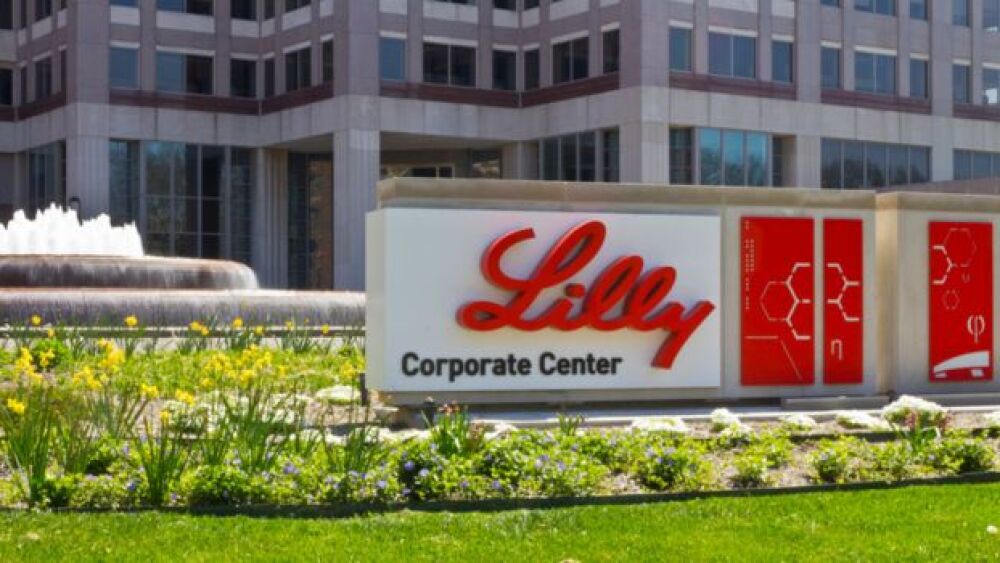More than 54% of patients treated with mirikizumab achieved clinical remission at 52 weeks versus 19.6% of those on placebo. Eli Lilly will submit a marketing application in Crohn’s disease to the FDA in 2024.
Pictured: Eli Lilly world headquarters/iStock, jetcityimage
A 52-week study finds Eli Lilly’s mirikizumab to be effective for long-term remission in over half of patients with Crohn’s disease. The company announced Thursday plans to submit a marketing application to the FDA for approval in 2024, followed by submissions to other global regulatory agencies.
In the Phase III trial, moderately to severely active Crohn’s disease patients on mirikizumab demonstrated clinical remission as well as endoscopic response at the one-year mark. Over 54% of the patients in the treatment arm achieved clinical remission at week 52, versus 19.6% of those receiving placebo. The endoscopic response was seen in 38% of those on mirikizumab versus 9% on placebo.
Safety was consistent with the known profile of the therapy with the frequency of serious adverse events greater in the placebo arm than the treated group, according to Lilly.
The interleukin-23p19 antagonist demonstrated “robust efficacy” across multiple subgroups and “particularly in patients for whom prior biologic therapy had failed,” Lotus Mallbris, senior vice president of immunology at Lilly, said in a statement.
The market for Crohn’s therapeutics has been a hot one this year as AbbVie’s blockbuster Humira sales have fallen with the entrance of biosimilars, leaving some room for a new best seller.
Johnson & Johnson’s Stelara is going head-to-head with AbbVie’s second monoclonal antibody in Crohn’s. Topline data from a Phase III trial released in September 2023 showed Skyrizi demonstrated signals of superiority. In the study, which was designed to establish non-inferiority, 59% of Skyrizi-treated patients achieved remission, compared to only 40% among those treated with Stelara.
Other big pharma companies have also targeted the market. Earlier this month, Sanofi announced a deal worth up to $1.5 billion with Teva Pharmaceuticals to develop an anti-TL1A therapeutic for inflammatory bowel disease, which includes ulcerative colitis and Crohn’s disease.
In July 2023, Roche was reported to be in talks to acquire a late-stage candidate from Roivant Sciences for upwards of $7 billion.
Kate Goodwin is a freelance life science writer based in Des Moines, Iowa. She can be reached at kate.goodwin@biospace.com and on LinkedIn.






